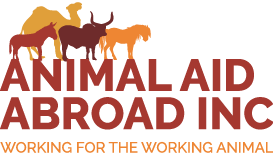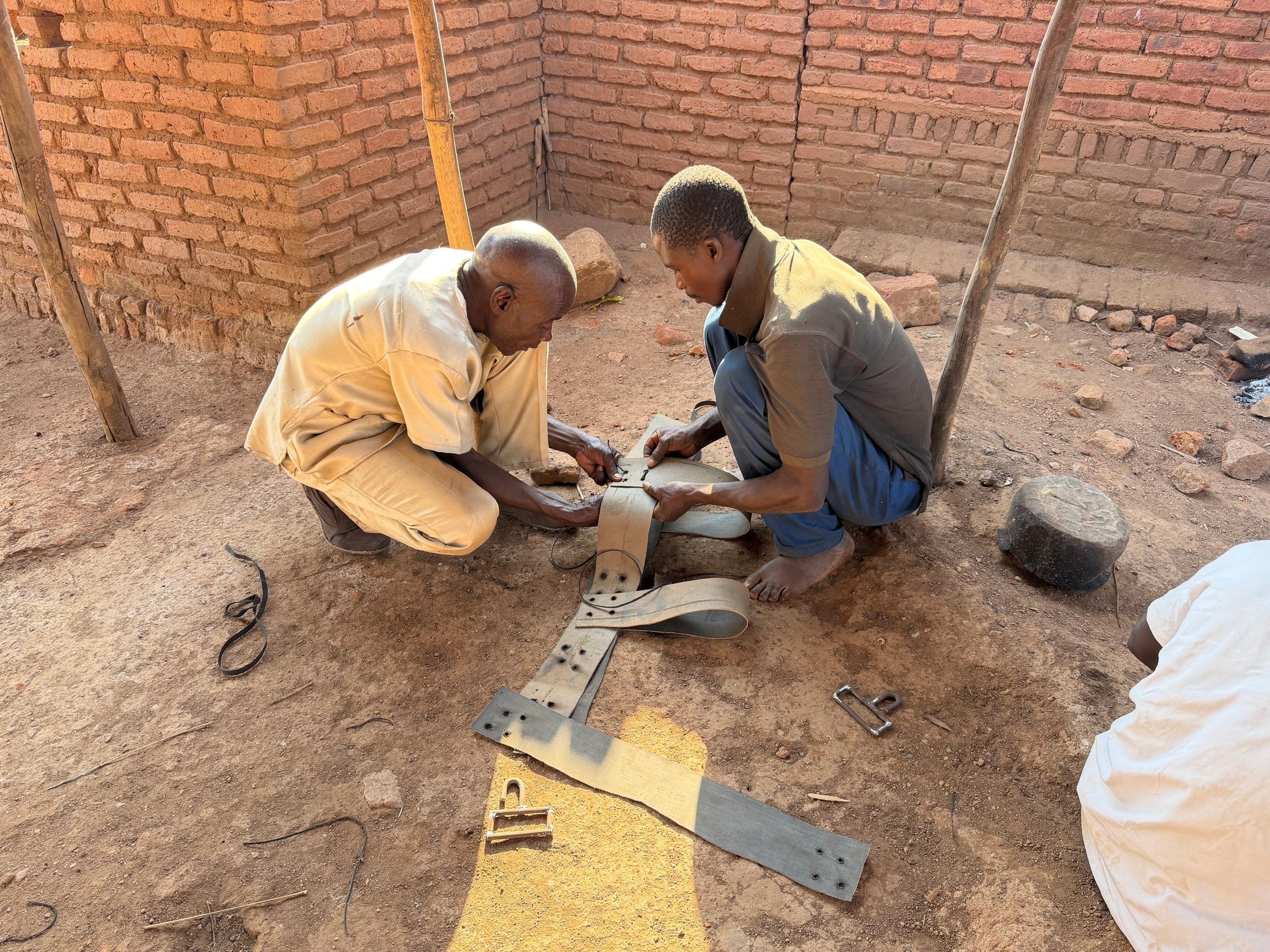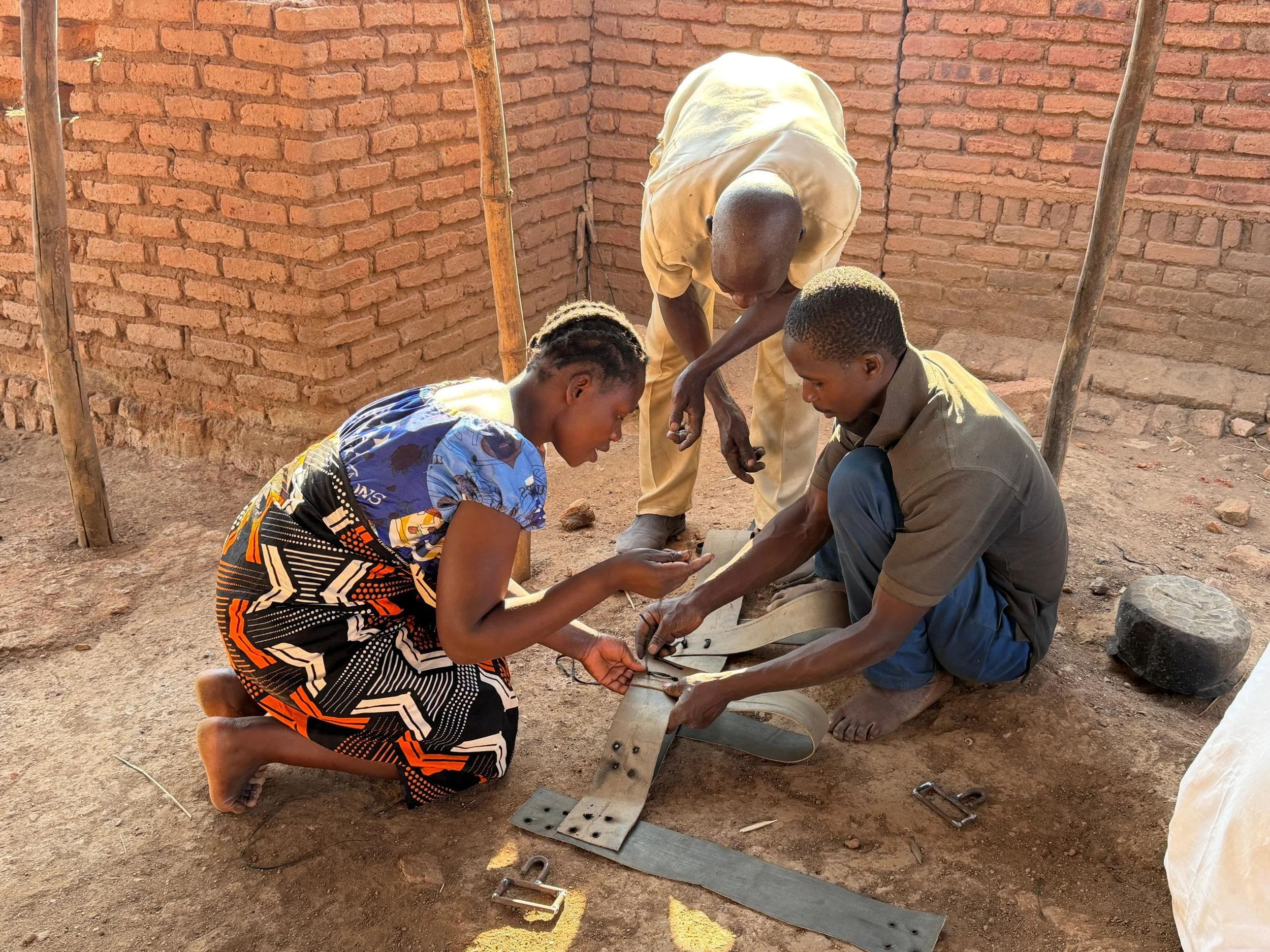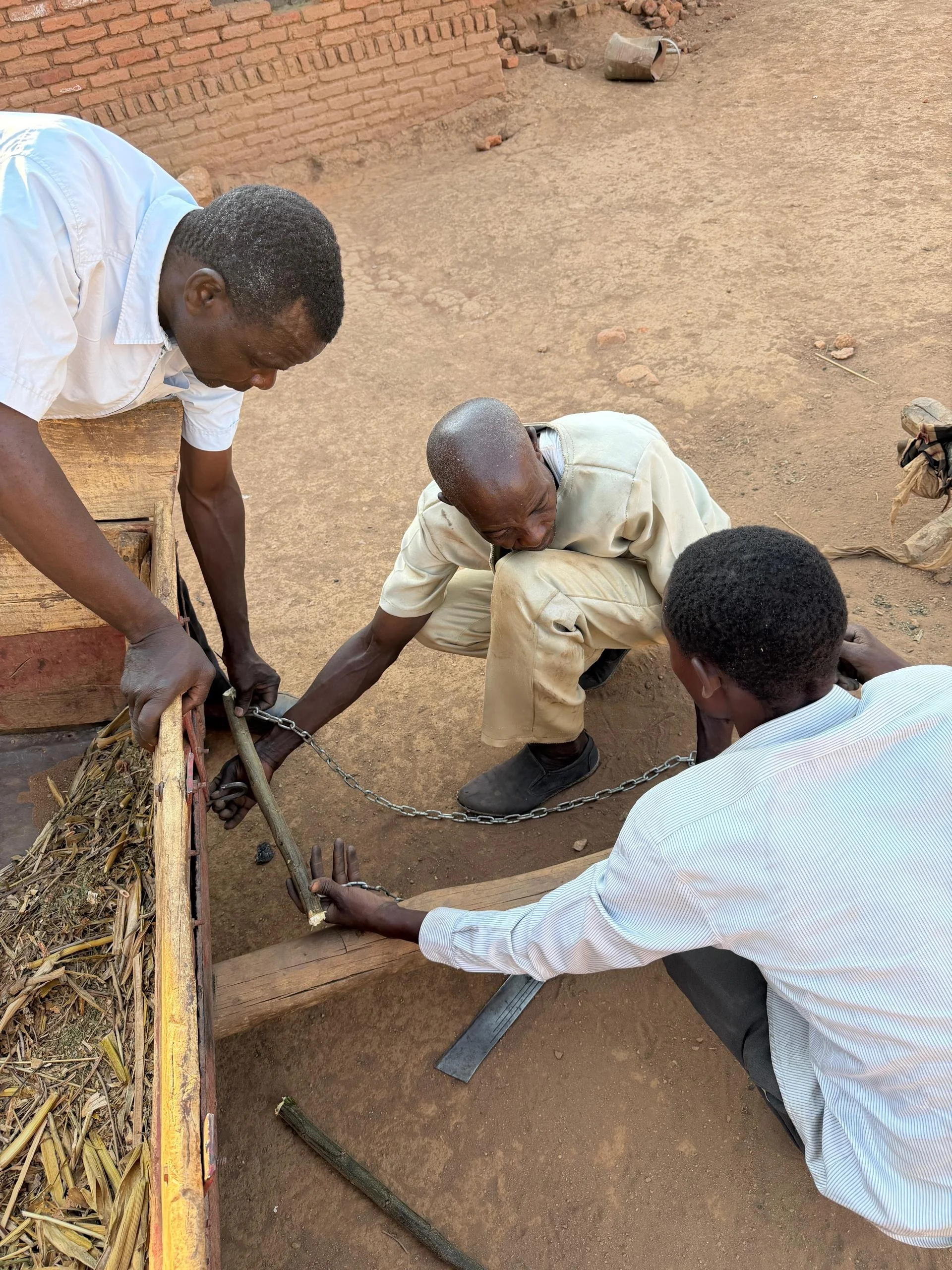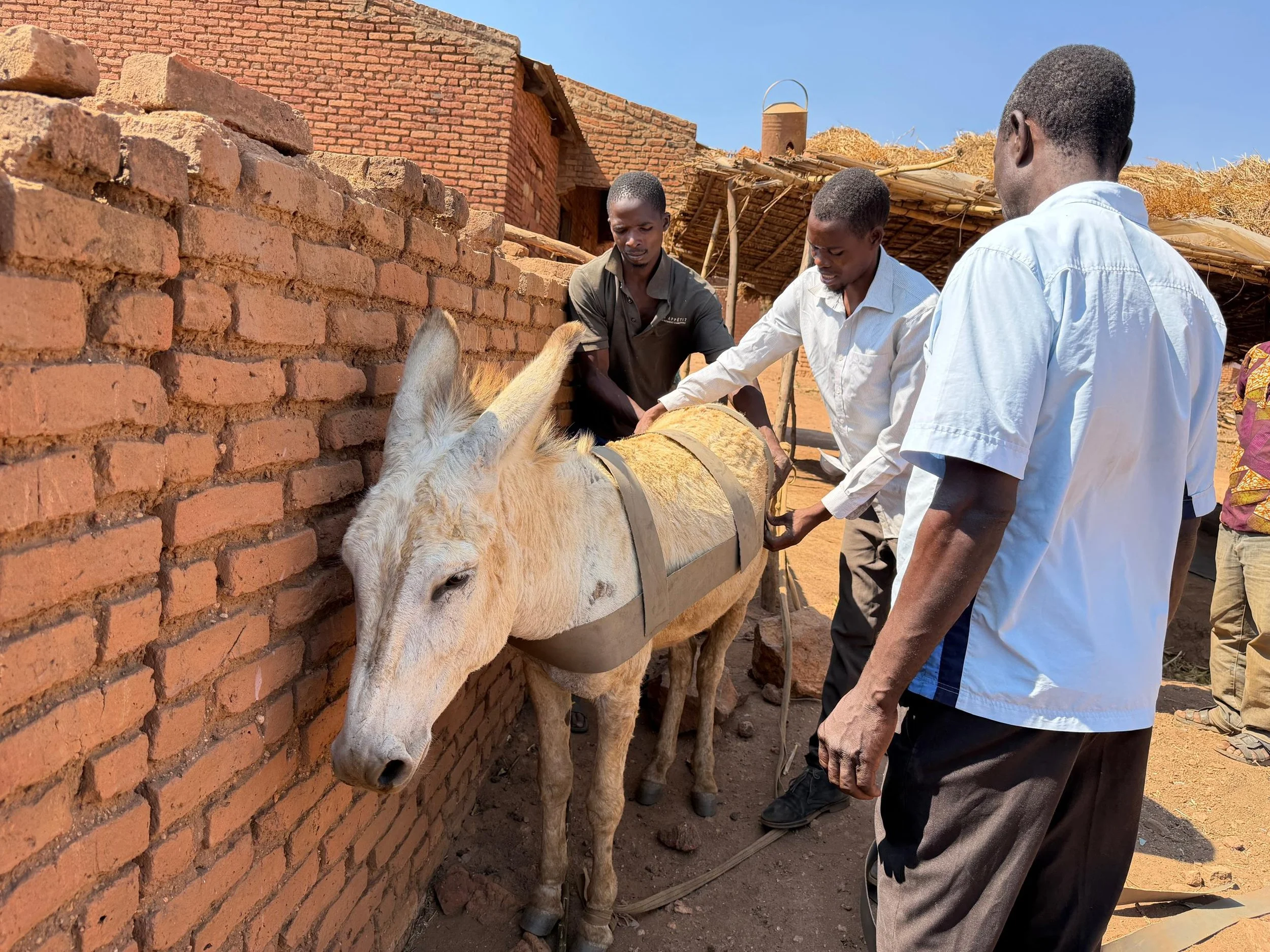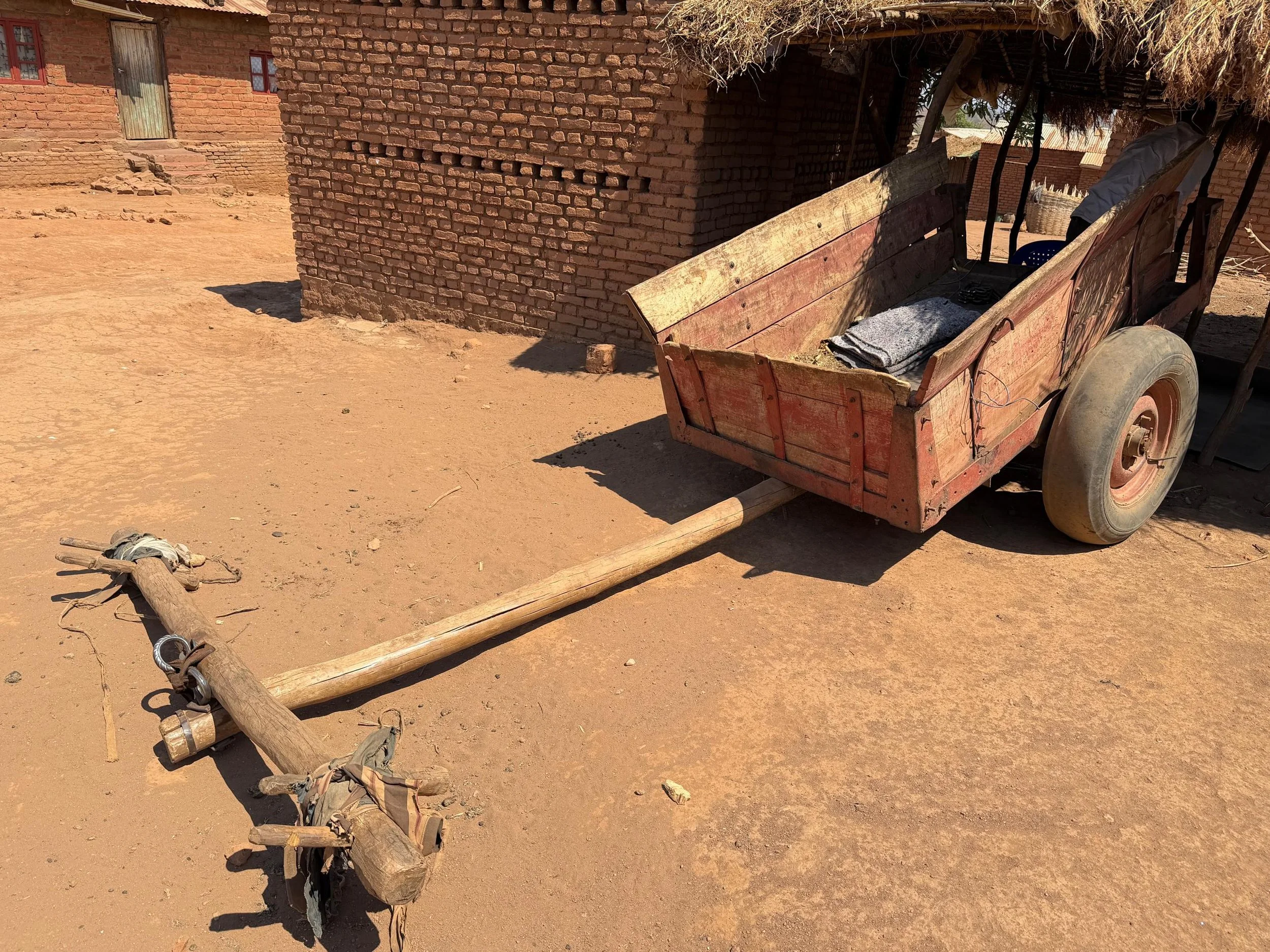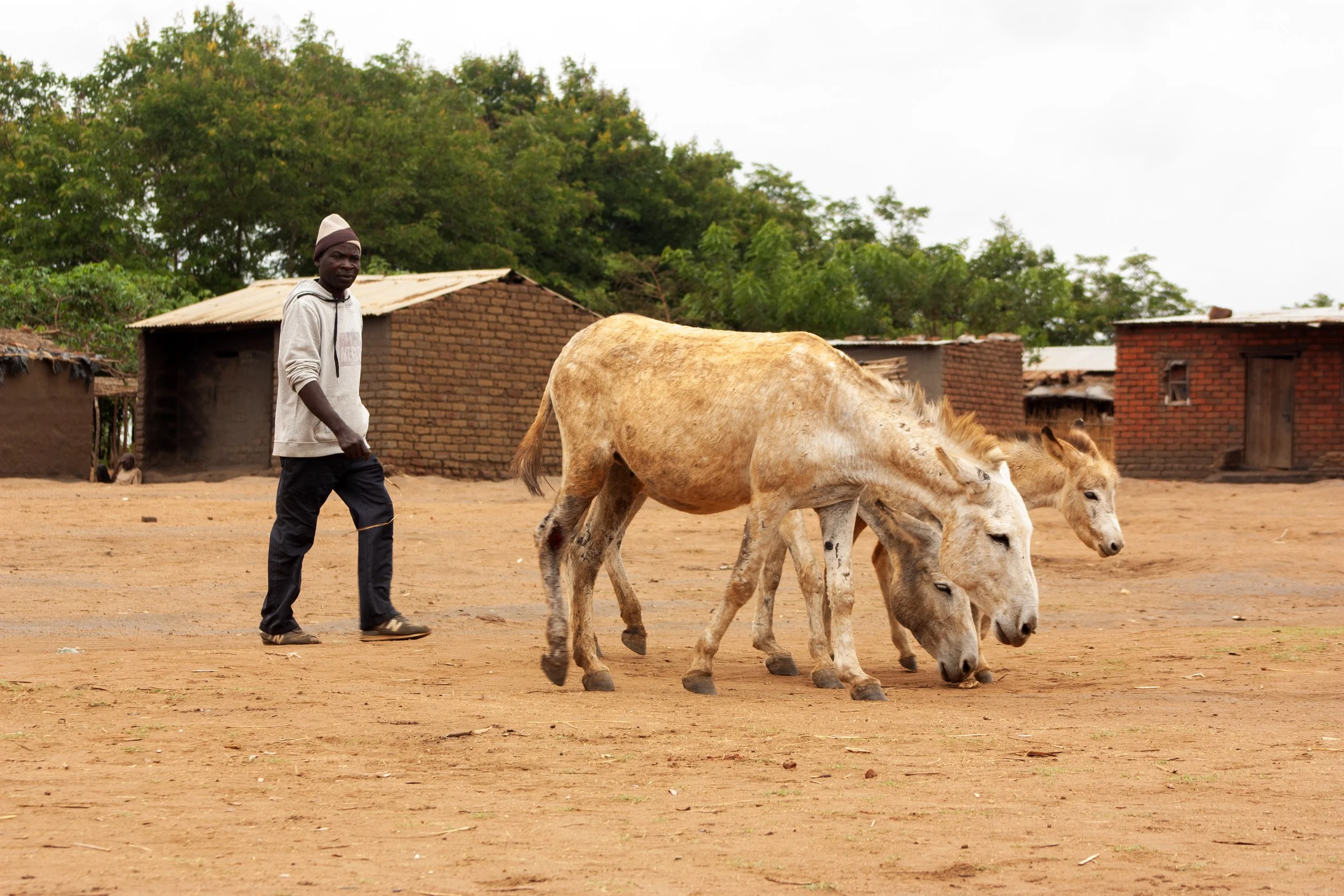Improving Donkey Welfare in Malawi through Humane Equipment & Education
Our partner group in Malawi, the Lilongwe Society for the Protection and Care of Animals (LSPCA), are dedicated to providing essential veterinary care for working donkeys. They also focus on owner education and repairing harnesses and carts, since these have a significant impact on donkey welfare.
See your donations in action for October:
Introduction
In collaboration with Animal Aid Abroad (AAA), the LSPCA continued its work to promote the welfare of working donkeys in October. This included two mobile donkey clinics and intensive practical work on harness and cart repairs. While donkey clinics remain central to providing direct veterinary care, the team also prioritised addressing persistent welfare concerns related to yoke injuries.
A total of 128 donkeys were seen at the two clinics, while 30 harnesses and five carts were repaired to prevent recurrent wounds and strain in donkeys. Additionally, 25 donkey owners participated in hands-on education sessions focusing on humane handling and preventive care.
Donkeys and their owners waiting to be attended to during a mobile clinic in Mitundu.
Veterinary Interventions and Outreach
Two mobile donkey clinics were conducted in Mtema and Mitundu, where a total of 128 donkeys received routine veterinary care. Treatments included deworming, hoof trimming, wound cleaning and dressing, as well as pain management and multivitamin support where needed.
These clinics not only improved the health and comfort of the animals during this busy agricultural season, but also provided valuable opportunities to engage with donkey owners on topics of humane handling, proper nutrition and overall donkey wellbeing.
One significant case involved a donkey from Mitundu who began displaying neurological signs following a reported dog bite three weeks earlier. The donkey was uncoordinated, hypersensitive and aggressive. Unfortunately, he had to be humanely euthanised.
Although this donkey tested negative for rabies, the experience revealed a critical misconception amongst farmers that only dogs can get rabies. Since donkeys are not routinely vaccinated against rabies in Malawi, this incident highlighted the need for community education on cross-species transmission of rabies and the importance of reporting dog bites promptly.
The clinic provided a valuable opportunity to educate owners about rabies in different species, how to recognise its signs and symptoms, the importance of reporting any symptomatic animals immediately and the critical role of vaccinating dogs.
Harness and Cart Repairs
The team also visited Katola to conduct hands-on harness and cart repairs. A total of 30 harnesses repairs were completed, focusing on softening sharp edges, padding pressure points and modifying designs to reduce neck and chest injuries.
The repairs were accompanied by practical demonstrations from a skilled harness maker, who guided farmers on repair techniques and regular equipment maintenance.
In addition, five cart repairs were completed. These included realigning shafts, lowering excessively high yoke points and fixing damaged axle systems that negatively impacted donkey gait and balance.
It was encouraging to see farmers actively participating and learning from the sessions. Many expressed appreciation for the practical skills acquired, which will help them continue making improvements independently.
During this field visit, an education session was delivered to 25 donkey owners. It covered humane handling of equines, principles of safe harness design and simple techniques for repairing yokes and carts.
Farmers making their own harnesses with guidance from the LSPCA team.
Fitting a newly-made harness before adding padding.
Challenges
Power outages: Frequent power disruptions affected scheduled cart repairs, especially for carts requiring welding to fix broken parts. This caused delays in technical work and limited the number of carts that could be fully repaired within the month.
Increased cost of repair materials: Prices for essential repair materials such as metal components, bolts and padding have risen significantly. While the team managed to procure enough materials to carry out repairs this month, the cost increases mean it is unlikely that the project will meet the full target number of repairs within the current budget for upcoming months.
An example of the commonly used traditional yoke which causes neck injuries.
Looking Ahead
LSPCA will continue to implement the donkey welfare project while addressing the challenges encountered last month. This will ensure continued improvements in donkey welfare.
The following actions are planned:
Continue targeted harness and cart repairs.
Maintain ongoing veterinary treatments through mobile clinics.
Provide follow-up education and support for donkey owners, reinforcing humane handling, proper workload management and regular equipment checks.
Manage the challenges posed by power outages and rising repair costs. This will include adjusting repair schedules to align with electricity availability and explore feasible cost-efficient measures to sustain our cart repair efforts.
Thank you to all our supporters for your kind hearts and invaluable donations. Together, we are creating a world where working animals are valued, appreciated, cared for and respected.
